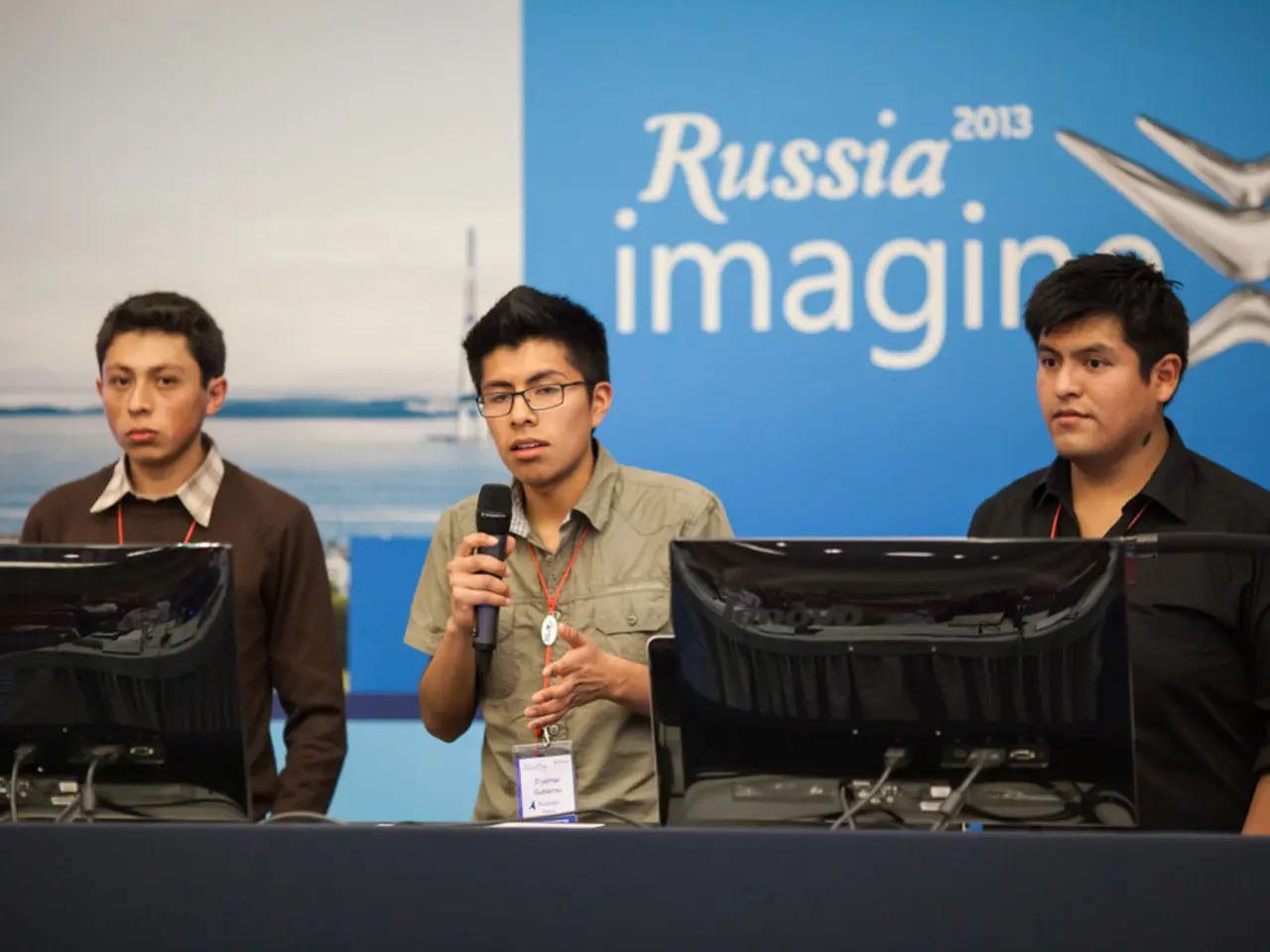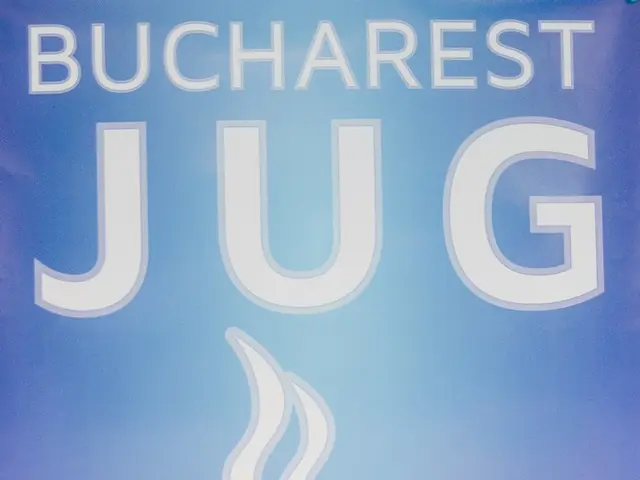TikTok's Shift to AI-Based Content Moderation: Implications and Controversies
TikTok's Artificial Intelligence Regulation Approach Meets Stiff Opposition from German Trade Union
TikTok, the popular social media platform, has announced a significant change in its content moderation strategy, opting for AI-driven moderation over human oversight. This decision, affecting approximately 150 positions in its Berlin trust and safety team, accounts for nearly 40% of its German workforce.
Brand Safety and Compliance
The EU's Digital Services Act (DSA) imposes strict obligations on large platforms to prevent the spread of illegal and harmful content. TikTok's shift to AI may help meet these compliance requirements more efficiently but raises concerns about accuracy and effectiveness in identifying nuanced content issues.
Compliance with the DSA is crucial for maintaining brand safety and user trust. However, as AI moderation becomes more prevalent, there is a risk that it may not always be able to handle complex social contexts or nuanced content judgments. For advertisers and brand managers, the change underscores the importance of closely monitoring a platform's content safety infrastructure when evaluating campaign placements.
User Trust and Contextual Understanding
Users generally prefer human oversight for content moderation, as it is perceived as more effective in handling complex issues like misinformation and context-dependent content. The shift to AI might conflict with user expectations and erode trust in the platform's ability to manage content responsibly.
AI systems, while efficient, often lack the contextual understanding that human moderators possess. This can lead to misinterpretation of content, potentially resulting in false positives or negatives—either removing legitimate content or failing to remove harmful content.
Human Oversight Concerns and Regulatory Pressures
The implementation of the UK's Online Safety Act and the EU's DSA has pushed platforms like TikTok to improve content moderation. However, relying solely on AI may not meet the full scope of regulatory requirements, especially in complex or nuanced scenarios.
Content safety experts warn that over-reliance on automation could create enforcement gaps under the DSA. Outsourcing to external contractors, often in jurisdictions with fewer workplace protections, raises additional concerns that moderators handling graphic material may not have access to the mental health resources available to in-house teams.
Union Concerns and Implications for Non-German Employees
Union ver.di demands extended notice, higher severance, and warns of immigration risks for non-German employees. Many affected employees are non-German citizens, and layoffs could jeopardize their residency status.
The union argues that removing trained moderators erodes the platform's ability to detect nuanced harmful content, increasing the risk of manipulative campaigns and disinformation.
The Broader Industry Trend
This move is part of a broader industry trend, with TikTok, Meta, X, Snap, and others reducing their trust and safety headcounts and relying more on automated tools. The affected work will now be split between algorithmic systems trained by ByteDance, TikTok's Chinese parent company, and external contractors.
Strikes and Negotiations
ver.di trade union has staged multiple strikes after negotiations with TikTok over severance terms and extended notice periods failed. The new structure will rely on artificial intelligence systems and outsourced labor for content review.
In conclusion, TikTok's shift to AI-based content moderation is a cost-effective strategy but poses risks to brand safety and user trust. Compliance with EU regulations is crucial, but the use of AI must be balanced with human oversight to ensure accuracy and effectiveness in managing complex content issues. Ultimately, the challenge will be to align AI-driven moderation with user expectations and regulatory requirements while maintaining a safe and trustworthy environment.
- The shift to AI-driven content moderation by TikTok, a popular social media platform, raises concerns about accuracy and effectiveness in identifying nuanced content issues, particularly when meeting the compliance requirements of the EU's Digital Services Act (DSA).
- As AI moderation becomes more prevalent, advertisers and brand managers need to closely monitor a platform's content safety infrastructure when evaluating campaign placements, due to the potential inability of AI to handle complex social contexts or nuanced content judgments.
- While AI systems may bring efficiency, users generally prefer human oversight for content moderation, as they perceive human moderators as more effective in handling complex issues like misinformation and context-dependent content.
- Content safety experts warn that over-reliance on automation could create enforcement gaps under the DSA, as outsourcing content moderation to external contractors, often in jurisdictions with fewer workplace protections, may jeopardize mental health resources available for moderators handling graphic material.
- This move towards AI-based content moderation by TikTok is part of a broader industry trend, with platforms like Meta, X, Snap, and others reducing their trust and safety headcounts and relying more on automated tools, potentially eroding the platform's ability to detect nuanced harmful content.




